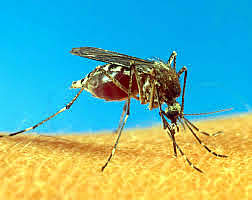RALEIGH – It’s mosquito season and it’s time for equine owners across North Carolina to talk to their veterinarians about protecting their animals from mosquito-borne diseases.
West Nile Virus and Eastern Equine Encephalomyelitis are endemic across North Carolina and can cause illness or death, but they can be prevented with a sequence of two vaccines.
In 2012, there were 20 confirmed cases of EEE and three cases of West Nile Virus, but state officials say they expect up to four unreported cases for each one confirmed, making the possible impact much larger.
“North Carolina has an extended mosquito breeding period, so every horse owner should talk to their veterinarian about how to protect their animal year-round,” State Veterinarian David Marshall said. “In addition to getting animals vaccinated, everyone needs to be extra vigilant now to reduce the breeding grounds for mosquitoes. Take the time now to rid your yard and pasture of any standing water to reduce the risk.”
The EEE and WNV vaccinations initially require two shots, three to four weeks apart, for horses, mules and donkeys that have no prior vaccination history. Neither vaccination fully protects the animal until several weeks after the second shot, so it is best to vaccinate as early in the mosquito season as possible.
Symptoms of EEE include impaired vision, aimless wandering, head pressing, circling, inability to swallow, irregular staggering gait, paralysis, convulsions and death.
Symptoms of WNV in horses can include loss of appetite and depression, fever, weakness or paralysis of hind limbs, convulsions, impaired vision or hyperexcitability.
People, horses and birds can become infected from a bite by a mosquito carrying the diseases, but there is no evidence that horses can transmit the virus to other horses, birds or people through direct contact.
CONTACT:
Dr. Tom Ray, director of livestock health programs
NCDA&CS Veterinary Division
919-733-7601

 RALEIGH – Two Quarter horses were euthanized this month after contracting Eastern Equine Encephalomyelitis, a mosquito-borne disease that is preventable in equine by vaccination.
RALEIGH – Two Quarter horses were euthanized this month after contracting Eastern Equine Encephalomyelitis, a mosquito-borne disease that is preventable in equine by vaccination. RALEIGH – Equine owners across North Carolina are urged to discuss their annual vaccination protocol with their veterinarians to protect their animals from mosquito-borne diseases.
RALEIGH – Equine owners across North Carolina are urged to discuss their annual vaccination protocol with their veterinarians to protect their animals from mosquito-borne diseases.